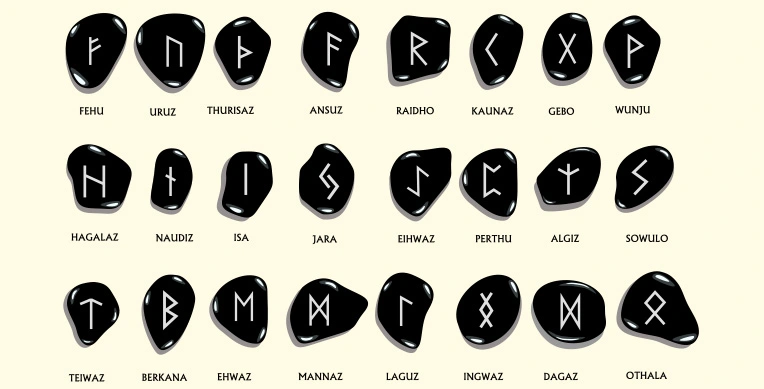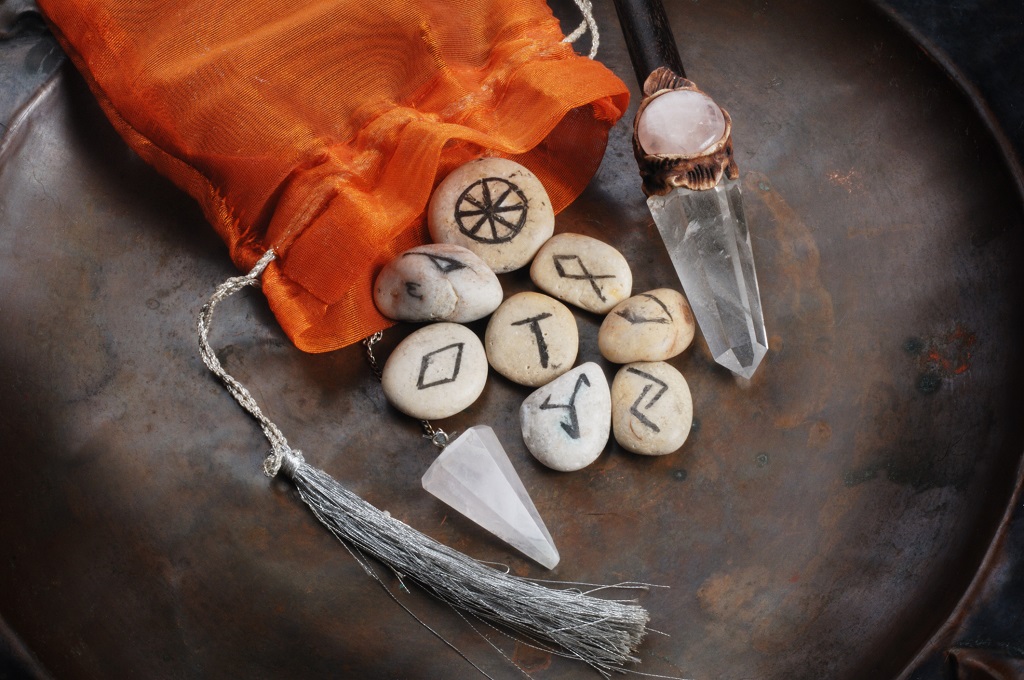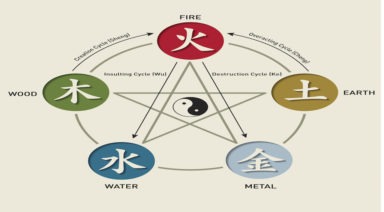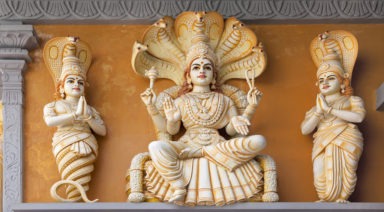The Importance of Solitude: Reconnecting With Your Inner Self

Our lives are so inundated with communication it’s overwhelming – text messages, emails, phone calls, the internet. And we’ve read a million articles reminding us how addicted we are to these things, yet it’s difficult to free ourselves from the clutches of these distractions. Maybe, it’s time to consider the benefits of solitude and carve out time to isolate ourselves from the interminable notifications of our interconnected world.
Sitting with One’s Thoughts: A Shocking Statistic
In 2014, a study published in the journal Science found that most people would rather shock themselves than sit undisturbed with their thoughts. Even after experiencing the shock before the trial and saying they would pay money not to be shocked again, 25 percent of women and 67 percent of men chose to shock themselves while sitting alone for 15 minutes. One of the participants even decided to shock himself 190 times in that period, but that person’s masochism is beside the point.
Unsurprisingly, results showed the majority of subjects did not enjoy their time sitting alone and being asked to simply think. Half of these participants rated their experience at, or below, a level of “somewhat enjoyable,” while most ranked it highly on a boredom scale.
Why is it so difficult for us to go inward and block out external stimuli? One theory claims it’s an evolutionary survival mechanism. Known as the Scanner Hypothesis, some researchers believe that as mammals we’ve evolved to monitor our environments for both danger and opportunity. Therefore, our brains consider doing nothing a waste of time.
But we evolved to be more than mere mammals behaving on natural instinct, or at least we have the ability to transcend those instincts if we consciously choose to do so. That’s what separates man from beast, right?
Unfortunately, our lives aren’t always conducive to the ascetic lifestyle, and taking a sabbatical to go live like a certain civilly disobedient poet at Walden Pond isn’t always in the cards. So, what can the average person do to escape the torpor of our stimulus saturated society?
Unplugging from Technology
How many times have you been waiting in line at the store, or sitting in a waiting room scrolling through social media before realizing you’ve retained almost nothing you just consumed? Think about it next time you’re casually scrolling through Facebook or Instagram, try to remember what you saw five posts ago – our mindless consumption is scary sometimes.
Alas, we must stay connected — we’re expected to. But if we devote an entire hour every day to rid ourselves of those connections, the psychological benefits may be pleasantly surprising.
The next step is to sit alone with your monkey mind, as the Buddhists refer to it, and go inward. Not so shockingly, the minority of subjects in the aforementioned study who enjoyed spending 15 minutes doing nothing, often had experience with meditation. Learning to accept the endless flow of thoughts and opinions crowding our minds is the first hurdle of meditation and mindfulness, and it’s not easy. But there’s no learning or achievement in anything easy. The work is in the pain and struggle; that’s the only way to grow and accomplish anything in life.
Sensory Deprivation Tanks a.k.a. Isolation Tanks
John C. Lilly invented the sensory deprivation tank in 1954 in an attempt to isolate the mind from all external stimuli. Lilly was interested in studying the depths of our psyche, and throughout his life frequently transcended numerous realms of consciousness. He even devised a scale for it based on the Buddhist enlightenment concept of Satori.
Today, sensory deprivation tanks have seen an explosion in popularity, especially over the past decade. Filled with hundreds of pounds of salt, these tanks allow for maximum buoyancy and are typically pitch black. Users experience disorienting weightlessness, where physical sensation disappears, leaving only the mind.
Most find float tanks pleasant and therapeutic; an environment for introspection, meditation, and tranquility. This abandonment of all sensory perception can lead to psychedelic experiences and profound personal insight. And floating around in a dark tub of water prohibits technological distraction, forcing the confrontation of the monkey mind.
Retreats and Isolation from Society
Those in need of a life-changing event or paradigm shift may need to devote a little more effort to finding solitude. Silent retreats are one way to disconnect from the world and they’ve become increasingly popular with the rise of Eastern spiritual practices in the Western world. Participants in these retreats take a vow of silence for days or weeks in order to go inward, while also cultivating self-discipline.
Jesse Itzler took the isolation retreat to the next level by temporarily living in a monastery in upstate New York. Itzler’s goal was to radically disconnect himself from the chaos of modern society and his fast-paced life as a successful entrepreneur. So, he spent two weeks living among a group of Russian Orthodox monks who spent much of their day in silent contemplation.
On his first night at 6:00 p.m., Itzler was brought to a modest room called a cell, with nothing but a desk and a bed. He was told to be ready the following day for prayer, meditation, and reflection at 7:15 a.m. Asking what he was supposed to do in the 13 hours until then, he was simply told to think.
Itzler had some experience with meditation, so to assuage his initial anxiety and boredom, he did so. After closing his eyes and attempting to silence his mind, Itzler believed he had meditated for hours until he looked at his watch and realized only three-and-a-half minutes had elapsed. Thus, began the longest two weeks of his life. In the end, he said the disconnection from society changed him for the better and improved personal relationships with his wife, family, and friends. But it wasn’t easy.
No matter which method is best for you, the scientific benefits of solitude and disconnection from the world are countless. Solitude is proven to boost productivity, build mental acuity, increase empathy, and harbor creativity. So, whether you decide to commit an hour, day, week, or even months to finding your solitude and reconnecting with your inner self… do it, especially if it’s difficult.
Watch Hide Away, a movie telling the story of a successful, but emotionally drained businessman who finds solitude on a journey into the refuge of nature:
The 24 Nordic Runes and Their Meanings

Norse runes are an ancient writing system used by the Germanic and Scandinavian peoples, which also serves a spiritual and symbolic function. This alphabet, known as Futhark, is composed of 24 runes, each with a unique meaning that connects to aspects of life, nature and spirituality. In this article we explore the origin of the Norse runes, their purpose and the meaning behind each of these fascinating symbols.
Table of Contents
- What Are the Nordic Runes?
- Exploring the 24 Norse Runes and Their Meanings
- History and Origin of the Nordic Runes
What Are the Nordic Runes?
Norse runes represent an ancient writing system dating back to the time of the Germanic and Viking peoples. Beyond their practical use as an alphabet, each rune possessed a deep meaning linked to ideas such as protection, wisdom or the cycles of life. These runes were not only engraved on stones and wood, but also on talismans and ritual objects, reflecting their connection to the mystical.
The best known runic system is the ancient Futhark, composed of 24 symbols, organized into three groups or aettir. These runes were used both as a tool of communication and divination, allowing the ancient Scandinavians to interpret messages of destiny and guide important decisions. This dualism between the practical and the spiritual makes the runes a bridge between the earthly and the divine.
Exploring the 24 Norse Runes and Their Meanings
The ancient Futhark, the runic alphabet composed of 24 symbols, is divided into three groups called aettir. Each group covers essential themes of life and reflects aspects related to human existence, from beginnings and prosperity to challenges and transformation.

Runes of the Fehu Group: Beginning and Prosperity
This group brings together symbols that represent the flow of creative energy, wealth and balance at the beginning of a cycle. The runes that compose it stand out for their connection with the materialization of ideas, stability and harmony. Here is a breakdown of their meaning:
- Fehu (wealth): Symbolizes prosperity, abundance and success in projects. It represents the energy of resources in motion, reminding us that sharing and managing well what we have is key to maintaining balance.
- Uruz (strength): Represents vitality and inner power to overcome challenges. This rune is also associated with renewal and personal transformation.
- Thurisaz (the giant): It is a rune of protection and defense against adversity. It also invites us to reflect before making important decisions, helping us to act wisely.
- Ansuz (communication): Related to divine knowledge and clear expression, this rune symbolizes the importance of listening and sharing ideas. It also favors the reception of intuitive and spiritual messages.
- Raidho (the journey): Represents movement, both physical and spiritual, and progress on our life path. It reminds us that each experience is part of a larger journey towards personal growth.
- Kenaz (the torch): Symbolizes enlightenment, creativity and knowledge. It is a rune that guides us in the search for hidden truths and the expression of our passion.
- Gebo (the gift): Associated with generosity and balance in relationships, this rune represents reciprocity and fair exchange. It teaches us the importance of maintaining a harmonious relationship between giving and receiving.
- Wunjo (joy): Represents satisfaction, happiness and harmony. This rune indicates that, after the challenges, comes a period of success and well-being.
Hagalaz Group Runes: Transformation and Challenges
The runes of this group are associated with overcoming trials, profound change and cycles of destruction and renewal. They represent uncontrollable forces of nature and life that push us to adapt and grow. These runes remind us that, although the road may be difficult, challenges prepare us for a stronger rebirth.
- Hagalaz (the hailstorm): Symbolizes the destruction that gives way to renewal. It teaches us that difficulties, although painful, are necessary to eliminate the old and make room for the new.
- Nauthiz (the need): Represents perseverance in the face of obstacles and the importance of facing limitations with patience. It reminds us that, even in times of scarcity, overcoming is possible if we work hard.
- Isa (ice): Symbolizes stagnation and the trials associated with immobility. It invites us to reflect and avoid paralysis due to fear or indecision, while waiting for the right moment to come.
- Jera (the annual cycle): Represents the fruits of our actions, which come at the right time. This rune reminds us that every effort has its reward, but only when the time is propitious.
- Eihwaz (endurance): Symbolizes strength in the face of adversity and the ability to transform fears into personal growth. It is a rune that inspires us to resist even in the most difficult moments.
- Perthro (destiny): Represents the unknown, the mysteries and the acceptance of what we cannot control. It teaches us to adapt to the unexpected and to trust the flow of life.
- Algiz (protection): This is a rune of defense and protection against negative forces. It reminds us that the connection with our intuition and spiritual guidance can protect us in difficult times.
- Sowilo (the sun): Symbolizes the clarity and success that comes after overcoming the shadows. It is a rune that encourages us to seek the light and inner strength to move forward with confidence.
Runes of the Tiwaz Group: Honor and Strength
This group is associated with sacrifice, justice and the courage needed to stand up for what is right. Tiwaz runes represent virtues such as integrity, leadership and determination, reminding us that success often requires perseverance and a deep commitment to our values.
- Tiwaz (justice): Associated with the god Tyr, it symbolizes sacrifice for the common good and the search for truth. It inspires us to act with honor and courage, even in the face of difficult challenges.
- Berkano (rebirth): Represents new beginnings, fertility and personal growth. This rune teaches us that change and regeneration are essential for progress.
- Ehwaz (the horse): Symbolizes mutual trust and collaboration in relationships or projects. It reminds us of the importance of moving forward as a team towards a common goal.
- Mannaz (humanity): Represents connection with others, cooperation and mutual support. This rune reminds us that our strength lies in our relationships and community.
- Laguz (water): Symbolizes intuition, emotions and the power of the unconscious. It teaches us to flow with circumstances and to trust our inner wisdom.
- Ingwaz (fertility): Represents the latent potential and the development of new ideas or projects. It is a rune of incubation that invites us to wait for the right moment to act.
- Dagaz (dawn): Symbolizes enlightenment and transformation that leads to new beginnings. It reminds us that after darkness always comes light.
- Othala (heritage): Represents roots, family and ancestral legacy. It teaches us to honor our traditions while using that knowledge to build our future.

History and Origin of the Nordic Runes
Norse runes emerged in ancient Germanic and Scandinavian cultures around the 2nd century AD. This writing system, known as ancient Futhark, was engraved on stones, weapons and tools, serving both practical and ceremonial functions. Each symbol had a profound meaning and was seen as a bridge between the earthly world and spiritual forces.
The design of the runes was deeply linked to the beliefs of the time, which venerated the forces of nature and the Norse gods. According to mythology, Odin, the god of wisdom, obtained the knowledge of the runes through an extreme sacrifice, hanging himself from the World Tree, Yggdrasil, for nine days and nights. This mythological account highlights the sacredness of the runes and their connection to the divine, giving them an essential role in the spiritual life of these cultures.
-
Runes as a Divination Tool
In ancient times, runes were used to interpret destiny and receive guidance in times of uncertainty. Practitioners would cast them on a surface and analyze their disposition to decipher messages about the present and possible futures. This method was based on the belief that runes could connect those who used them with higher energies, offering clarity and wisdom.
Today, runes continue to be a spiritual resource for many people. They are used in both personal readings and group ceremonies, where the meaning of each rune is interpreted according to the overall context. Their purpose is not limited to foreseeing the future, but also helps to explore inner issues and make decisions in harmony with one’s life purpose.
-
Runes in Rituals and Spiritual Practices
In addition to their divinatory use, runes have a prominent place in spiritual rituals. Each symbol is considered to carry a specific energy, and is used in talismans, amulets or even meditations to channel its strength. These practices seek to harmonize people with the energies represented by the runes, allowing a deeper connection with nature and the cosmos.
Sacred chants, known as Galdr, are also part of runic practices. By chanting specific sounds associated with each rune, practitioners empower their intention and activate the energies they represent. These ceremonies combine tradition and spirituality, inviting you to explore the transformative power of runes and their ability to guide you towards personal balance.
-
The Legacy of the Norse Runes
Over time, the spread of Christianity in Europe displaced the use of runes, which were replaced by Latin alphabets. However, their symbolism and mysticism have endured over the centuries. Today, runes are recognized as a powerful bridge between ancient traditions and modern spiritual practices. Inspiring generations of seekers, these ancient inscriptions continue to be a source of wisdom, spiritual connection and self-discovery, keeping their legacy alive.







